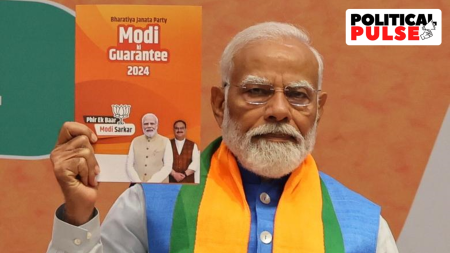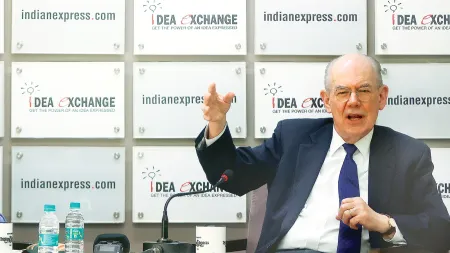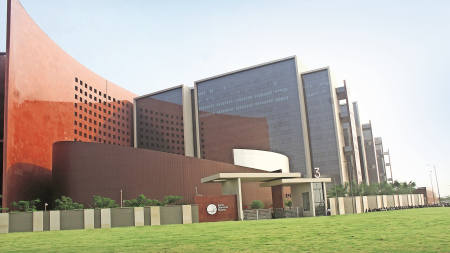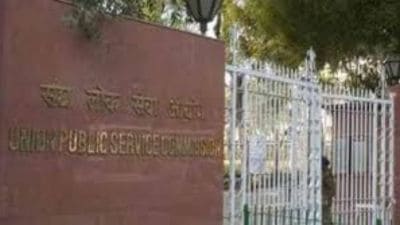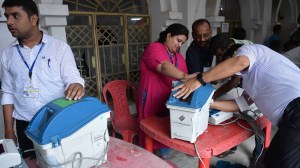- India
- International
Hapless migrants on road, broken supply chains show glaring gaps in how Centre, states implement lockdown
Indeed, as many as four clarificatory notes had to be issued by the Home Ministry since the PM’s speech to expand the list of essential supplies and services.
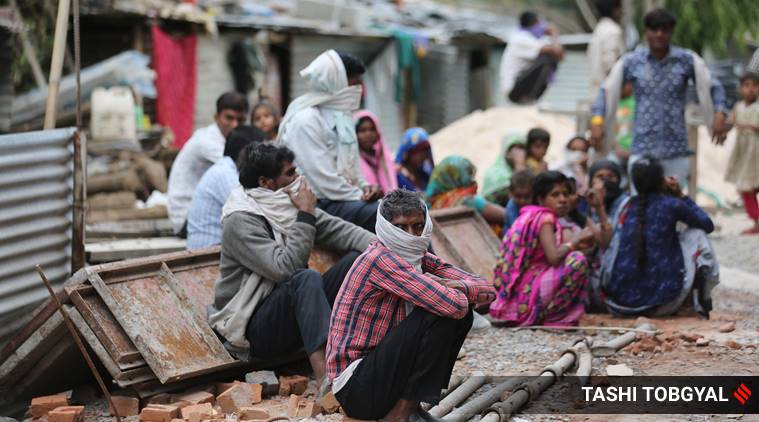 A large number of labourers from Bihar , Rajasthan have been stuck at a school construction site under the lock down in Uttam Nagar, New Delhi on Wednesday. (Express Photo by Tashi Tobgyal)
A large number of labourers from Bihar , Rajasthan have been stuck at a school construction site under the lock down in Uttam Nagar, New Delhi on Wednesday. (Express Photo by Tashi Tobgyal)
Caravans of migrant labourers walking hundreds of kilometres along highways and across shuttered cities, running out of food and the nationwide disruption in supply chains have exposed glaring gaps in the implementation of the 21-day Covid-19 lockdown the Prime Minister announced on March 24 by the Centre and the states.
Indeed, as many as four clarificatory notes had to be issued by the Home Ministry since the PM’s speech to expand the list of essential supplies and services.
And today the Ministry urged states to help migrants with food and shelter and prevent their cross-state movement — essentially telling them to fix the mess they had done little to create.
“The lockdown could have been planned better, not at four-hour notice,” said an official citing the South Africa example where a 21-day lockout that began Friday midnight got a notice of three days.
That’s why after several reports of police toppling vegetable carts, stopping supply trucks, there were new additions to the Home Ministry’s list of essential items and services almost every day since the PM’s speech.
Consider the sequence of events.

Also Read | Holes in the net: Many who have been hit still left out, relief too little
Notably, a lockdown until March 31 had been announced right after the Janata Curfew of March 22 following a meeting between the Centre and the states. Many states invoked the Epidemic Diseases Act, 1897, and restricted public gatherings and non-essential movement.
On March 23, Cabinet Secretary Rajiv Gauba wrote to Chief Secretaries of all states and Union territories that restrictions be “rigorously imposed.”
After the PM’s announcement on March 24 at 8 pm, the MHA issued guidelines on restrictions and said that “shops, including ration shops dealing with food, groceries, fruits and vegetables, dairy and milk booths, meat and fish, animal fodder” were exempted.
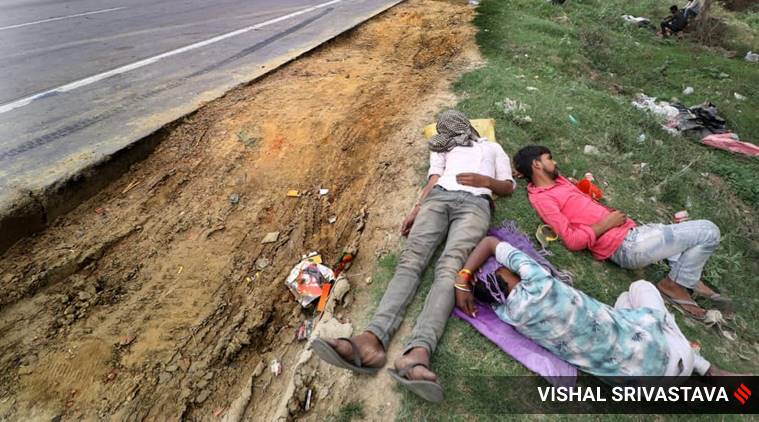 Labourers walking to their villages take a nap along the Lucknow-Faizabad highway on Thursday. (Express photo by Vishal Srivastav)
Labourers walking to their villages take a nap along the Lucknow-Faizabad highway on Thursday. (Express photo by Vishal Srivastav)
But March 25 saw chaos on the ground with stores running out of supplies as trucks were not allowed to cross borders, vegetable and fruit kiosks were forcibly shut by police, doctors were not allowed to cross inter-state borders and e-commerce delivery staff were beaten up even as their warehouses were forced to down shutters.
By evening, MHA had added more exemptions to its prohibitory orders and written to Central Association of Private Security Industry among others to not lay off security guards.
Also Read | Fear and mistrust on way, at home: Migrant workers bear the brunt
On March 26, MHA again issued a clarification that its guidelines included exemptions for “animal feed and fodder” and acknowledged that some states were not allowing the same.
On the same day, Delhi police released a long list of e-commerce platforms issuing orders to allow their movement only to withdraw it within hours.
On March 27, it issued another addendum to its guidelines. This time it added among essentials various farming-related goods and services.
Just as with supply chains, on the migrants issue, too, the response was muddled.
Significantly, the exodus of out-of-work migrants from Mumbai and Pune going back to their homes in UP and Bihar, complaining of jobs lost and afraid of the pandemic, had begun even before the Janata Curfew on March 22.
Yet, the lockdown until March 31 was extended that day and the Railways had, by afternoon, issued orders of suspension of trains until March 31.
Result: Stranded, laid off and fearful, migrants hit the street home.
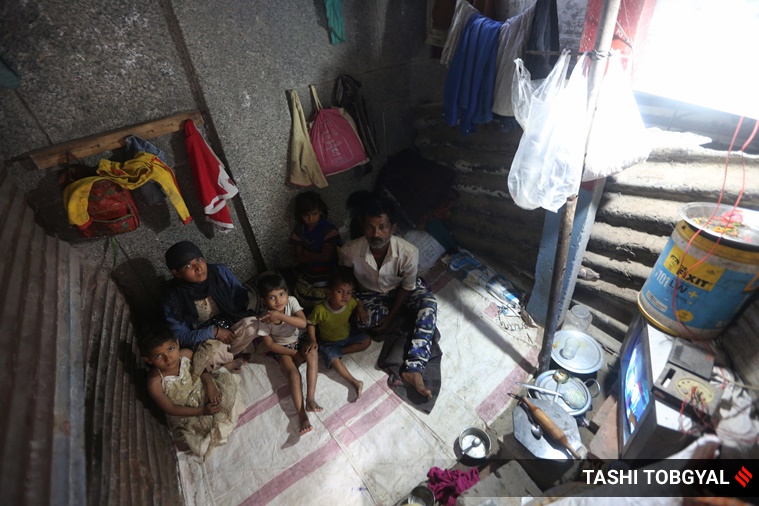 Migrant labourers in Delhi.
Migrant labourers in Delhi.
Police and state governments admit the PM’s 21-day announcement caught them off guard. Experts said that the coronavirus outbreak was not an earthquake — that catches an administration by surprise — nor was it a development that called for a closely guarded response.
Clearly, the Centre and states had agreed but not coordinated on the lockdown. A top Delhi Police officer said that so sudden was it, that the police, too, needed time to work out the details of its implementation and figure out what was an essential service.
Assam Finance Minister Himanta Biswa Sarma suggested that states were not prepared for such a lockdown. In an interview to The Indian Express, Sarma said the state government was prepared for a week-long lockdown but a 21-day lockdown would raise challenges for all North-East states.
“No one has stocks or preparations for 21 days. It will be difficult for us to manage. I am a little worried about how people will react after a week,” said Sarma, also the convener of North East Democratic Alliance, a BJP-led coalition in the Northeast.
Also Read | CM leading virus fight: Welcome Centre’s package, but Kerala will need much more
Officials point to the contrast in Jammu and Kashmir. “We were not told that Article 370 was going to be abrogated but we were told that a lockdown was coming. So for almost a week, we held mock drills on how to maintain supplies during the lockdown,” a bureaucrat said.
Former UP DGP Prakash Singh, who also runs the Indian Police Foundation which has sent a paper on how to manage a lockdown to all police chiefs, said that an advance internal warning would have streamlined efforts.
“I have a feeling that different wings of government were taken by surprise. There should have been a notice of 48 hours. You have suddenly stopped everything, including all trains and airlines. Maintaining restrictions of 75%, mobility of 25% could have been allowed initially. Administration would have prepared by then. They should have been given clear instructions. No one knew this was going to happen. But it should settle down in a few days. I would still say we are doing better than many nations,” he said.
A former police chief of Jammu and Kashmir said that the key to an effective lockdown and seamless civil supplies is advance preparation and comprehensive “pass” system — both lacking this time.
Also Read | 300 migrants found crammed in two trucks, thousands in a railway train
“The dependence is excessively on force. The police have actually done a good job of ensuring a lockdown,” he said. “Supplies is not the job of the police but of the civil administration. The police have no clue about the supply chain. There are laid-down systems which run down from DM to tehsildar. Everyone’s role is defined.”
Here’s a quick Coronavirus guide from Express Explained to keep you updated: Are smokers at high risk form coronavirus? | Can Vitamin-C prevent or cure coronavirus infection? | What exactly is community spread of coronavirus? | How long can the Covid-19 virus survive on a surface? | Amid the lockdown, what is allowed, what is prohibited?
Apr 16: Latest News
- 01
- 02
- 03
- 04
- 05




